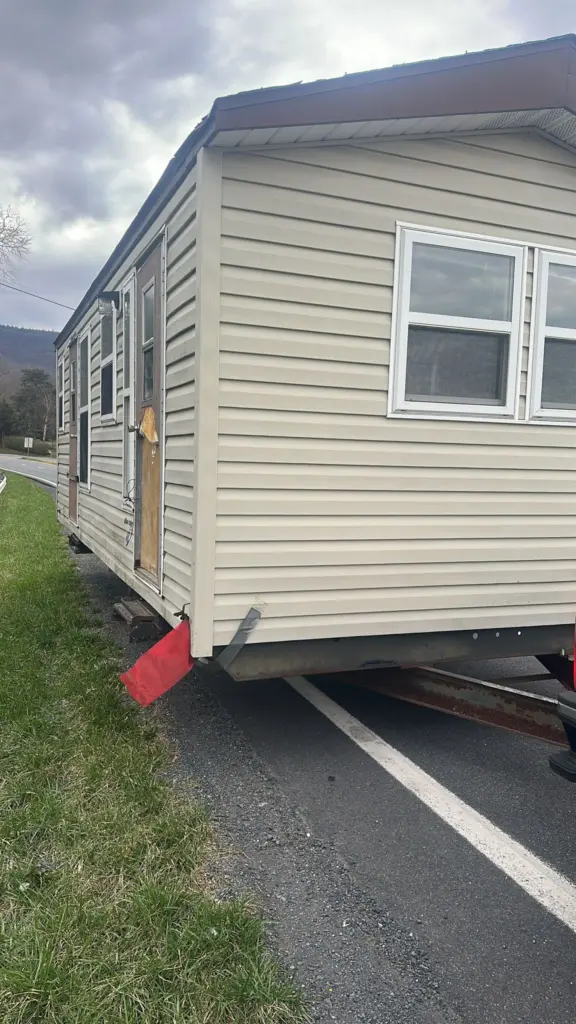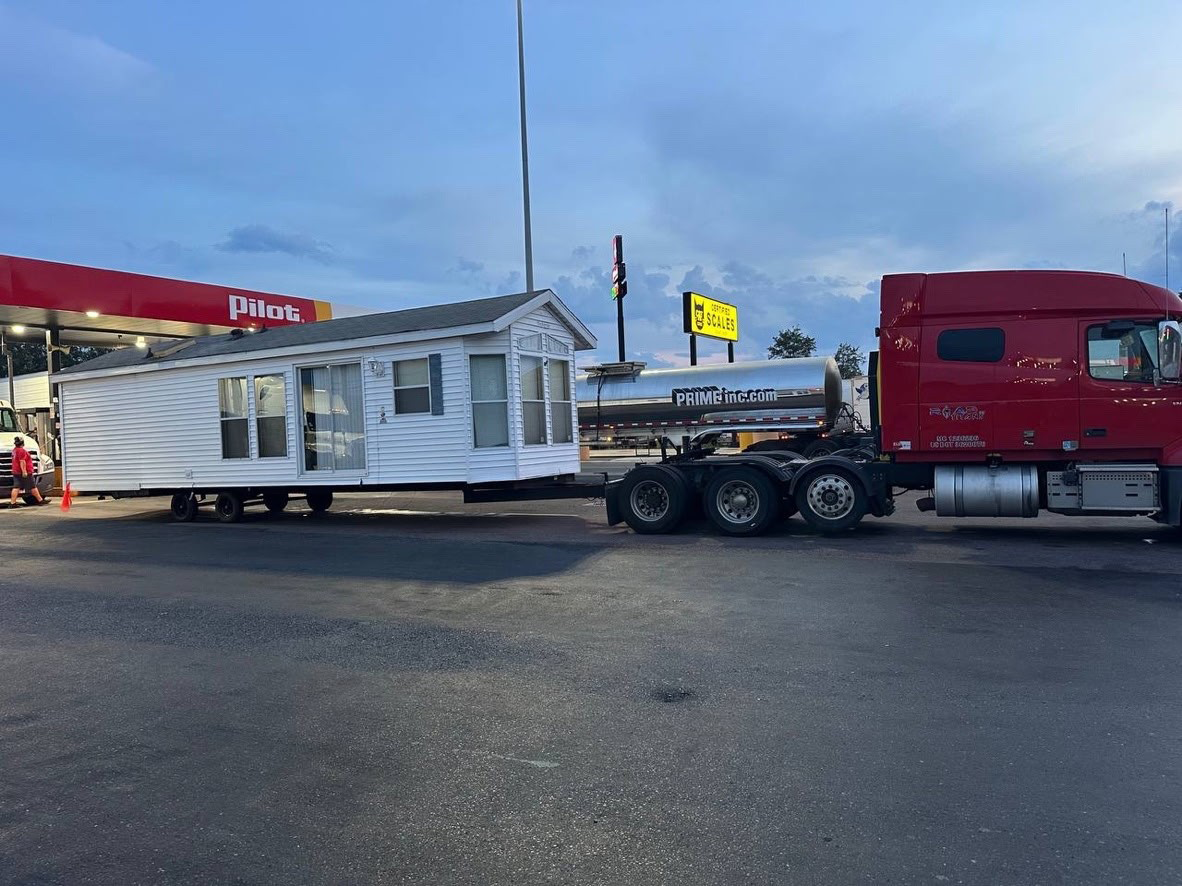Why Logi Transports is the Best Choice for Mobile Home Transport Near Me
When you’re searching for “mobile home transport near me,” the options can feel overwhelming. Moving a mobile home isn’t just about relocating a structure—it’s a complex process involving safety, legality, and expertise to ensure your investment arrives intact. That’s where Logi Transports shines as the premier choice. With years of experience in heavy-haul logistics across the USA, Logi Transports specializes in mobile home transport, offering reliable, nationwide service that prioritizes your peace of mind. Whether you’re relocating for a job, downsizing, or chasing warmer weather, Logi Transports combines cutting-edge equipment, certified drivers, and personalized planning to make your move seamless. In this article, we’ll explore why Logi stands out and dive into the key things to consider before transporting your mobile home, empowering you to make an informed decision.
The Logi Transports Difference: Expertise You Can Trust
Logi Transports isn’t just another logistics provider—they’re industry leaders in oversized and specialized transport, including mobile homes. Founded with a commitment to excellence, the company operates from Sebastian, Florida, but serves every corner of the United States, from bustling Texas highways to remote rural routes. What sets them apart? It’s their holistic approach to heavy-haul challenges.
First, specialized equipment and technology. Mobile homes require more than standard trailers; they demand lowboys, step-decks, and hydraulic dollies capable of handling widths up to 16 feet and lengths exceeding 80 feet. Logi Transports maintains a fleet of state-of-the-art rigs equipped with GPS tracking, allowing real-time updates on your shipment’s progress. No more anxious waiting—clients receive instant notifications via their user-friendly app or dashboard.
Second, experienced, certified teams. Every driver at Logi is CDL-endorsed with oversize load permits and undergoes rigorous training in securement techniques. They navigate tricky scenarios like low clearances or weight restrictions with finesse, reducing the risk of delays or damage. The Better Business Bureau rates Logi Transports highly for their A+ accreditation, reflecting a track record of zero major incidents in mobile home hauls over the past five years.
Third, comprehensive insurance and compliance. Accidents happen, but with Logi, you’re covered. They provide full cargo insurance up to $1 million per load, far exceeding industry standards, plus liability for any roadside issues. As a DOT-registered carrier , they handle all federal and state permits automatically, sparing you bureaucratic headaches.
Customer testimonials echo this reliability. “Logi Transports moved our 1978 double-wide from Florida to Arizona without a scratch—on time and under budget,” shares one satisfied client on their site. Another praises the “white-glove service,” where coordinators walk you through every step, from site surveys to final setup. Rates are competitive too: expect $2.50–$4.00 per mile for standard hauls, with quotes tailored to distance, terrain, and home size. For “near me” searches, Logi’s local dispatchers ensure quick response times—often within 24 hours.
In a sea of generic movers, Logi Transports delivers personalized, end-to-end solutions. They don’t just transport; they partner with you for a stress-free relocation.


Key Things to Consider Before Transporting Your Mobile Home
Before dialing up “mobile home transport near me,” arm yourself with knowledge. Transporting a manufactured home involves more than loading it onto a truck—it’s a regulated endeavor with potential pitfalls. Here’s a breakdown of essentials, drawn from HUD guidelines and industry best practices, to guide your prep.
1. Assess Your Home’s Condition and Age
Start with a thorough inspection. Mobile homes built before 1976 may lack HUD certification, complicating interstate moves—federal law requires post-1976 units to have a red HUD label for legal transport. Hire a structural engineer to check for frame rust, axle integrity, and roof leaks. Example: If your home’s axles are original and corroded, replacement could add $1,500–$3,000 to costs. Older homes (20+ years) often need reinforcements like cross-bracing to withstand road vibrations. Tip: Document everything with photos; insurers demand proof of pre-move condition.
2. Navigate Legal and Permitting Requirements
Laws vary by state, so verify regulations early. You’ll need an oversize/overweight permit for homes wider than 8.5 feet—costs range from $15 in Texas to $100+ in California for escorted loads. Transfer the title to a “transport-only” status via your state’s DMV, which might require a VIN verification. Interstate moves trigger federal DOT rules, including escort vehicles for loads over 12 feet wide. Non-compliance? Fines up to $10,000 per violation. Pro tip: Use Logi Transports’ compliance team—they file permits digitally, often securing approvals in 48 hours.
3. Budget for Costs and Timeline
Transport isn’t cheap: Factor in $3,000–$10,000 total, depending on distance (e.g., 500 miles might run $2,500). Hidden fees? Pilot cars ($1.50/mile), tarps for weather protection ($200), or utility disconnects ($150). Timeline: Allow 2–4 weeks for planning, plus 1–5 days for the haul. Delays from weather or route restrictions can balloon expenses—plan for off-peak seasons like spring to avoid hikes. Example budget breakdown:
- Base haul: $0.03/mile x distance
- Permits/escorts: 10–20% of total
- Prep work: $500–$1,000
Secure at least three quotes, but prioritize licensed carriers like Logi to avoid fly-by-night operators.
4. Prepare Utilities and Secure the Structure
Safety first: Shut off electricity, gas, and water 24 hours prior. Drain all lines to prevent freezing or bursts—wrap exposed pipes with foam insulation. Remove skirting, awnings, and satellite dishes; secure appliances with ratchet straps (e.g., fridge bolted to walls). Exterior: Retract steps, hitch up axles, and block wheels. Interior: Pack loosely to allow flex during transit—use bubble wrap for cabinets. If skirting removal reveals pest issues, treat beforehand to comply with arrival-site quarantines.
5. Plan the Route and Destination Setup
Map your path using tools like Google Earth for low bridges (clearance under 13’6″ spells trouble). Avoid urban rush hours; rural routes cut escort needs. At destination, inspect the foundation—permanent setups require concrete piers per HUD specs, while temporary ones need blocks. Coordinate with local installers for leveling (aim for <1-inch variance). Example change: If your route hits a 12-foot overpass, reroute 50 miles to add $300 but save disassembly hassles.
6. Insurance and Professional Help
Standard homeowner policies exclude transport—get specialized coverage for en-route perils like collisions or theft. Logi includes $100,000 base, upgradable. Always vet movers: Check FMCSA safety ratings (Logi’s is exemplary) and reviews on BBB or TransportReviews.com. Skip DIY; pros handle 95% of snags.
Overlooking these can turn a smooth move into a nightmare—delays, damages, or denials. With Logi Transports, these considerations are baked into their process, from free consultations to post-move audits.
Choose Logi Transports: Your Partner in Seamless Relocation
In the world of “mobile home transport near me,” Logi Transports rises above with unmatched expertise, transparency, and care. They’ve relocated thousands of homes without a hitch, earning raves for efficiency and affordability. Ready to move? Visit logitransports.com for an instant quote or call 1-864-791-LOGI. Don’t just transport—elevate your journey with the best. Your home deserves it.

